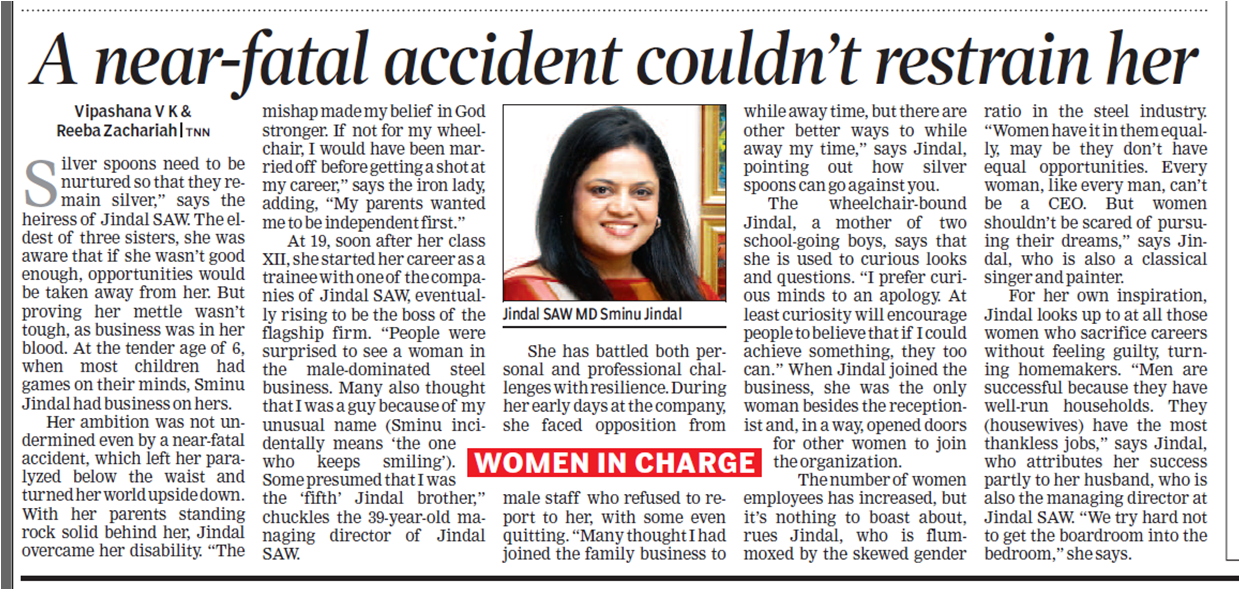Government of India reaches out to the Corporate Sector seeking partnership in realising the dream of #AccessibleIndia. The corporates can take up a public buildings & spaces. The mobile app to give wings to this programme is likely to be launched towards the end of August 2015.
Here is the coverage in Economic Times:
Accessible India: Let’s make public buildings disabled friendly says government to India Inc
By NIDHI SHARMA, ET Bureau | 8 Aug, 2015, 04.00AM IST
NEW DELHI: Adopt a public building and make it disabled-friendly – this is what the government is telling companies. As part of its Sugamya Bharat or Accessible India initiative, the Centre is roping in big corporates and asking them to take up a school, hospital, park, mall or other public building in their city for this purpose.
The initiative will begin with the identification of public places that are inaccessible to the differently abled and need minor structural changes, including ramps for wheelchairs or tactile strips and braille signage for the visually challenged. The department of disability affairs in the ministry of social justice and empowerment is developing a mobile app in connection with this initiative. Using this, anyone can take a photograph of a public building and upload it, flagging how it’s not disabled friendly.
The department of disability affairs will draw up a list of buildings that need to be upgraded and send it to the states.
“The ministry or the states would not have the funds to make all these corrections,” a senior ministry official told ET. “But corporate players and private firms would have money under their corporate social responsibility schemes to undertake such initiatives.”
Even before the launch of the mobile app or the initiative, the disability division has started getting queries from the corporate sector. “A Bangalore-based firm has asked us how can they be of some help in this initiative,” the official said.
Even before the launch of the mobile app or the initiative, the disability division has started getting queries from the corporate sector. “A Bangalore-based firm has asked us how can they be of some help in this initiative,” the official said.
“A few other queries have come. As we formally launch the programme by the end of this month, we are confident the corporate players would come forward and adopt public buildings.”
Source: Economic Times

